| A.S.S.E.Psi. web
site (History of Psychiatry and Psychoanalytic Psychotherapy )
A.S.S.E.Psi.NEWS (to
subscribe our monthly newsletter)
Ce.Psi.Di. (Centro
di Psicoterapia Dinamica "Mauro Mancia")
Maitres à dispenser
(Our reviews about psychoanalytic congresses)
Biblio Reviews
(Recensioni)
Congressi ECM (in italian)
Events (our
congresses)
Tatiana Rosenthal and
... other 'psycho-suiciders'
Thalassa. Portolano
of Psychoanalysis
PsychoWitz
- Psychoanalysis and Humor (...per ridere un po'!)
Giuseppe Leo's Art Gallery
Spazio
Rosenthal (femininity and psychoanalysis)
Psicoanalisi Europea Video Channel
A.S.S.E.Psi. Video Channel
Ultima uscita/New issue:
"Why War in
Ukraine and in Europe? Psychoanalysis, Trauma, and Resiliency" (English
Edition)
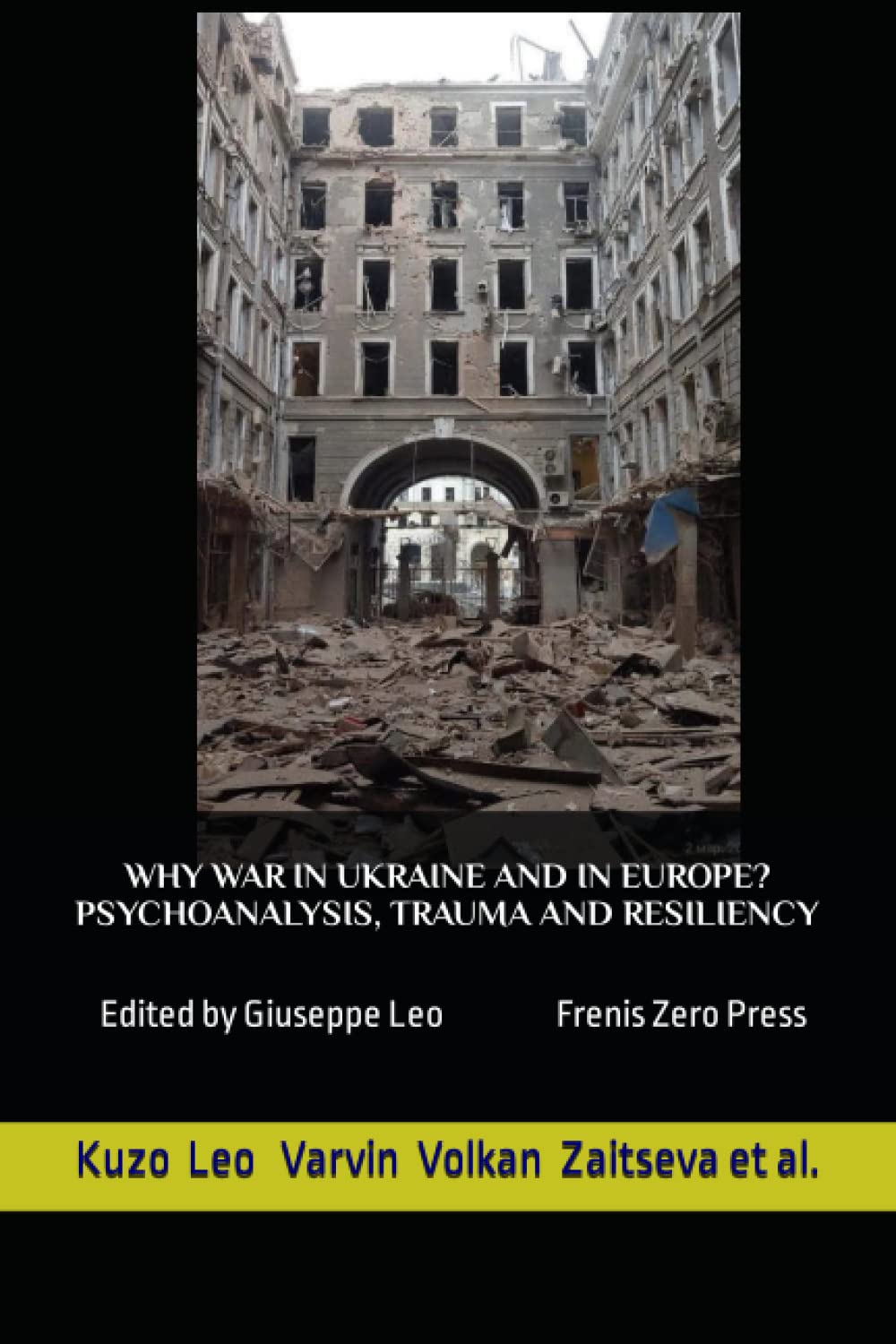
Edited by Giuseppe Leo
Writings by: V. Blikhar N.
Kalka
H. Katolyk L. Kuzo G. Leo
A. Marchuk
M. Tsyvinska S. Varvin
V. D. Volkan K. Zaitseva
Publisher:
Frenis Zero
Collection: Mediterranean Id-entities
Year: 2023
Pages: 235
ISBN: 978-88-97479-42-0
Click
here to buy the book/Compra su Amazon

"Neuroscience
and Psychoanalysis" (3rd English Edition)
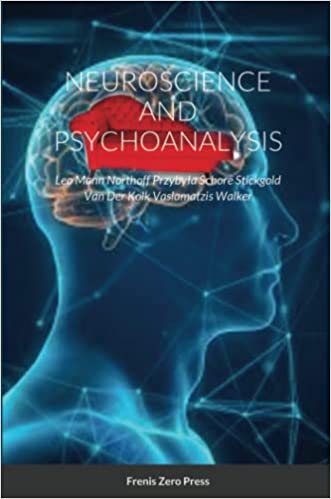
Edited by Giuseppe Leo
Writings by: D.
Mann
G.Northoff
J. Przybyła A. N.
Schore
R. Stickgold B.A. Van Der
Kolk G.
Vaslamatzis M.P. Walker
Publisher:
Frenis Zero
Collection: Psychoanalysis and Neuroscience
Year: 2023
Pages: 321
ISBN: 978-88-97479-40-6
Click
here to buy the book/Compra su Amazon

"Infant
research e psicoanalisi" (ediz. italiana)
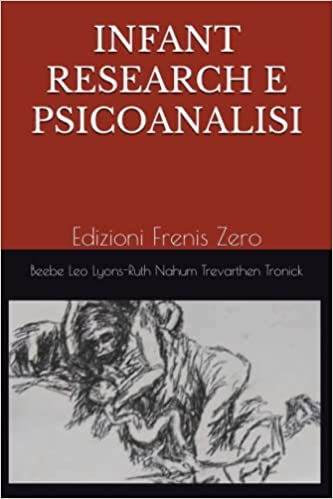
A cura di: Giuseppe Leo
Scritti di: B.
Beebe K.
Lyons-Ruth J. P.
Nahum D. Schechter E. Solheim
C. Trevarthen E. Z.
Tronick
L. Vulliez-Coady
Editore: Frenis Zero
Collana: Confini della psicoanalisi
Year: 2022
Pages: 276
ISBN: 978-88-97479-38-3
Click
here to buy the book/Compra su Amazon

"Crisi ecologica e pandemia. Una sfida per la
psicoanalisi"
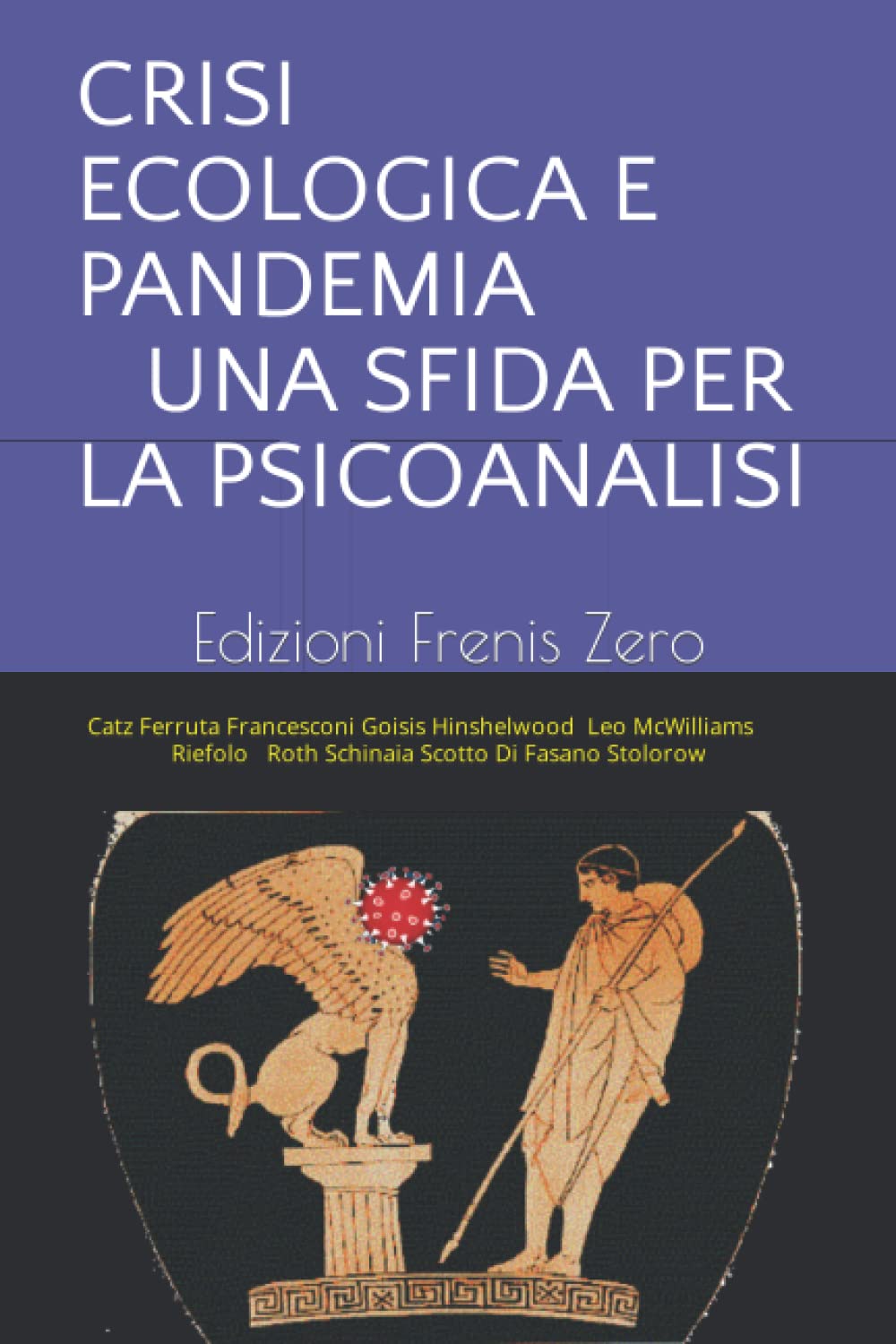
A cura di Giuseppe Leo
Scritti di: Hilda
Catz, Anna Ferruta, Marco Francesconi, Pietro R. Goisis, Robert
Hinshelwood Giuseppe Leo, Nancy McWilliams, Giuseppe Riefolo, Merav
Roth, Cosimo Schinaia, Daniela Scotto Di Fasano, Robert D. Stolorow
Editore: Frenis Zero
Collana: Confini della Psicoanalisi
Anno: 2022
Pages: 268
ISBN: 978-88-97479-36-9
Click
here to buy the book/Compra su Amazon

"Enactment in
Psicoanalisi"
(Edizione Italiana)
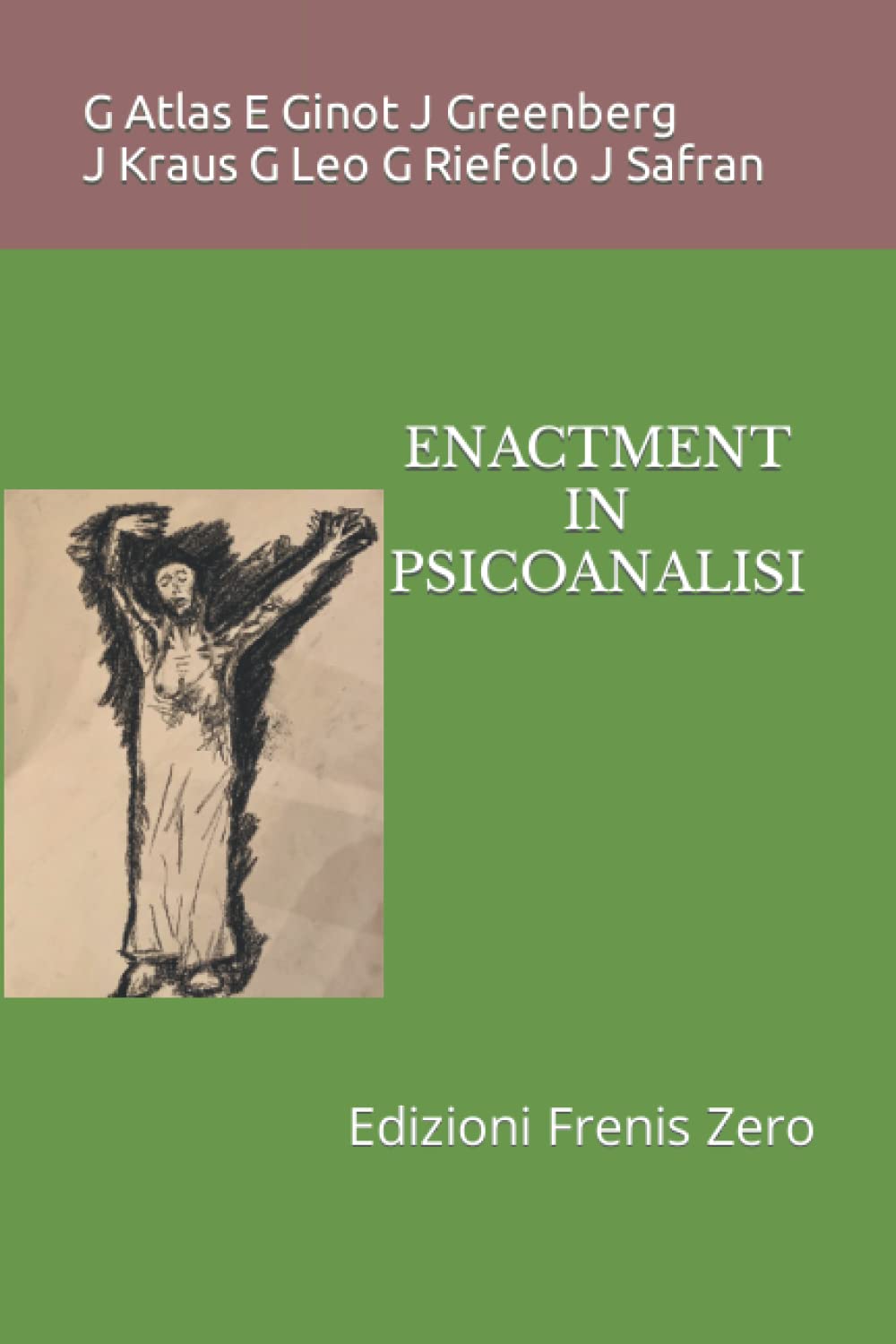
A cura di Giuseppe Leo &
Giuseppe Riefolo
Scritti di: Galit Atlas Efrat
Ginot
Jay Greenberg Jessica
Kraus Giuseppe
Leo Giuseppe
Riefolo Jeremy Safran
Editore: Frenis Zero
Collana: Confini della Psicoanalisi
Anno: 2022
Pages: 320
ISBN: 978-88-97479-34-5
Click
here to buy the book/Compra su Amazon

"Blown Lives. A Tale
for Spielrein, Gross, Tausk and the other losers of
psychoanalysis" by Giuseppe Leo
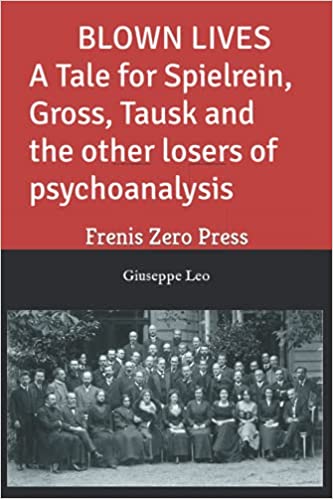
Editore/Publisher: Edizioni Frenis
Zero
ISBN: 978-88-97479-32-1
Anno/Year: 2021
Pages: 284
Click here to buy the
book/Compra su Amazon

"My Ideas Felt Like
Outsize Clothes. A tale for Etty Hillesum" (Second Edition)
by Giuseppe Leo
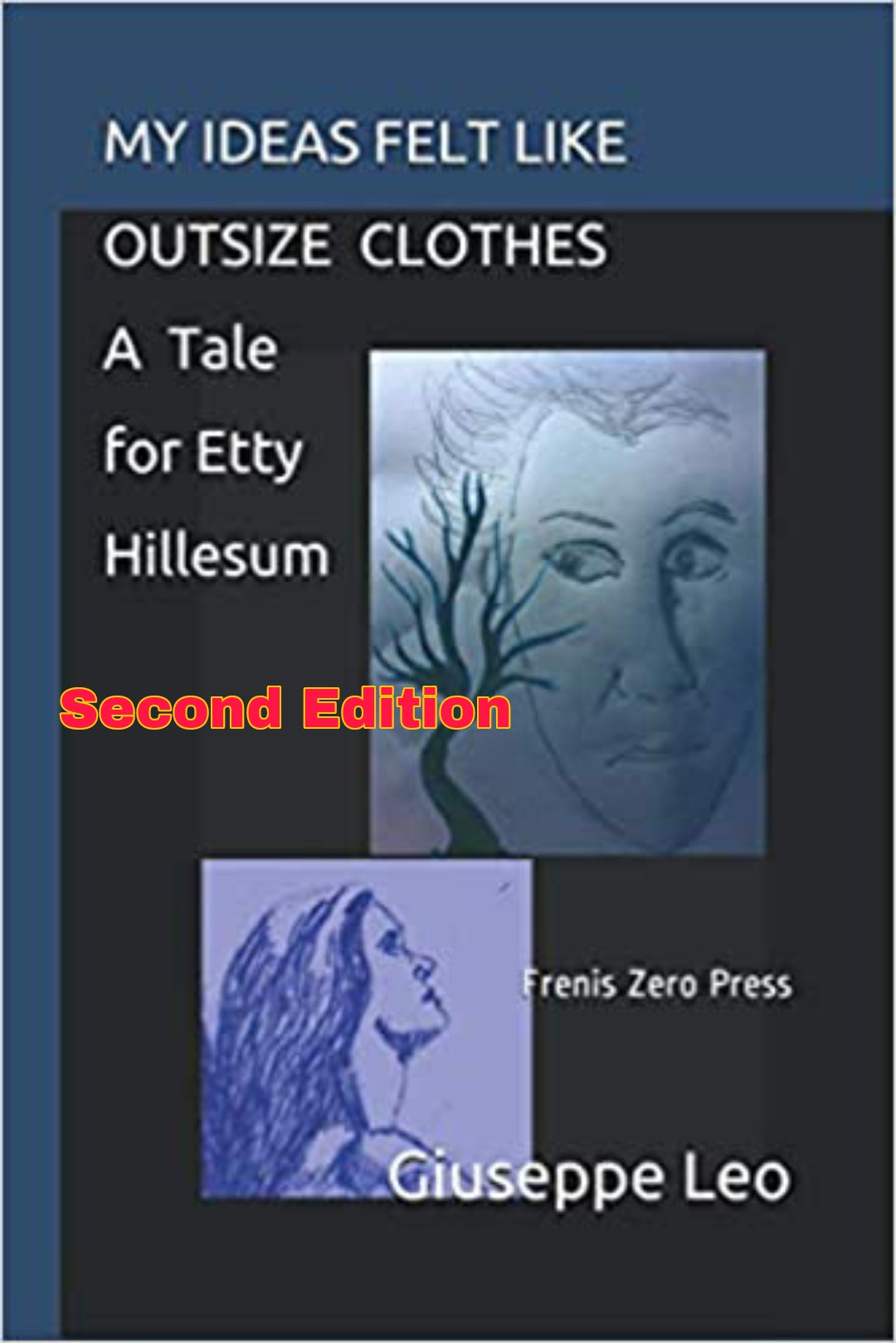
Editore/Publisher: Edizioni Frenis
Zero
ISBN: 978-88-97479-28-4
Anno/Year: 2021
Pages: 128
Click here to buy the
book/Compra su Amazon

"Infant
Research and Psychoanalysis" (Third Edition) edited by
Giuseppe Leo
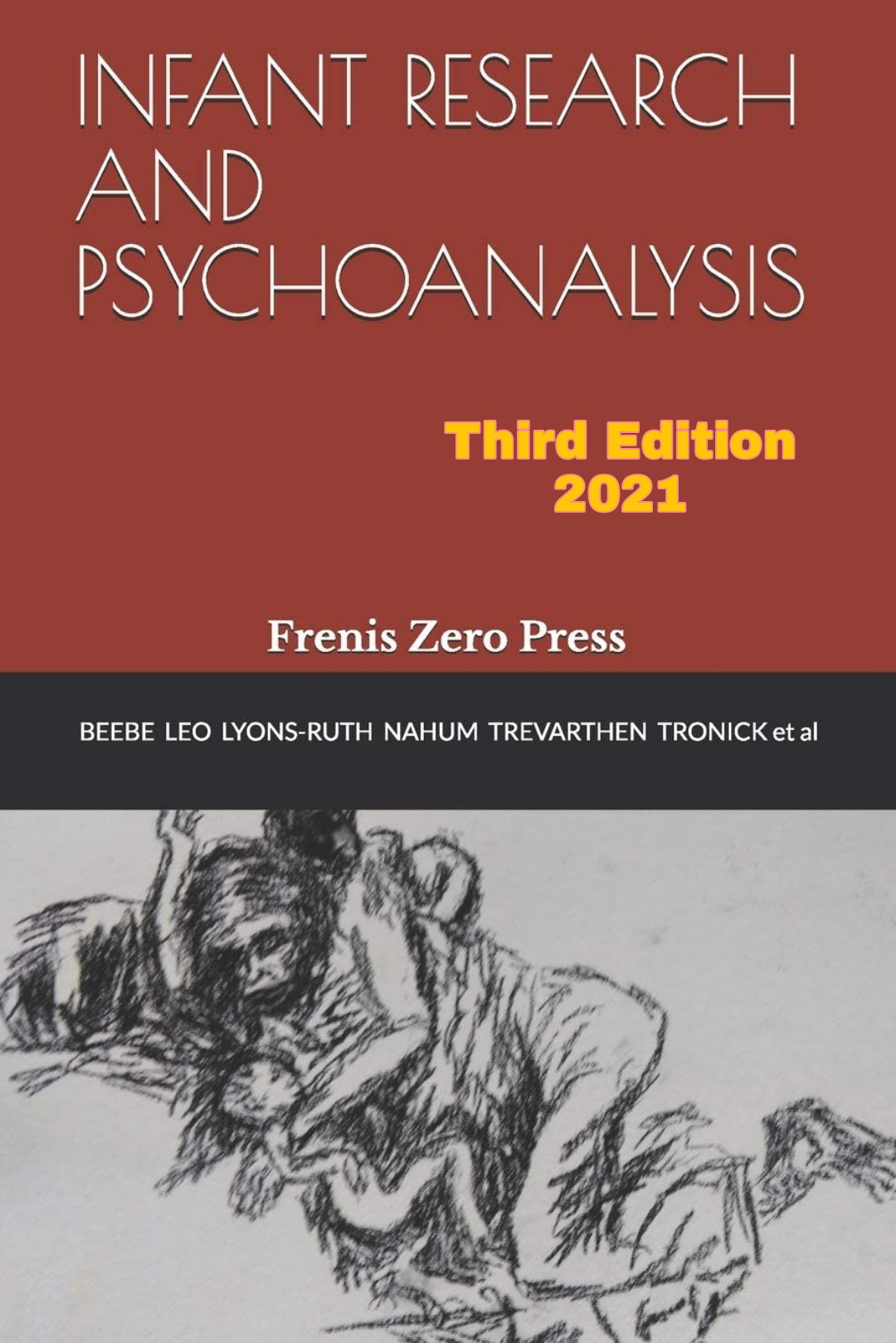
"
Edited by Giuseppe Leo
Writings by: B.
Beebe K. Lyons-Ruth J. P. Nahum D.
Schechter E. Solheim C.
Trevarthen E. Z.
Tronick
L. Vulliez-Coady
Publisher: Frenis Zero
Collection: Borders of Psychoanalysis
Year: 2021
Pages: 285
ISBN: 978-88-97479-24-6
Click
here to buy the book/Compra su Amazon

"Psychanalyse,
Lieux de Mémoire et Traumatismes Collectifs" (Third Edition) edited
by Giuseppe Leo
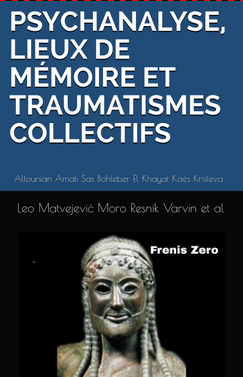
Writings by: J.
Altounian, S. Amati Sas, W. Bohleber, M. El Husseini, R. El Khayat, Y.
Gampel R. Kaës, J. Kristeva, G. Leo, A. Loncan, P. Matvejević, M.-R.
Moro, S. Resnik, S. Varvin
Editore/Publisher: Edizioni Frenis
Zero
ISBN: 978-88-97479-22-2
Anno/Year: 2021
Pages: 546
Click
here to buy the book/Compra su Amazon

"Enactment
in Psychoanalysis" - Second Edition) edited by Giuseppe Leo
& Giuseppe Riefolo
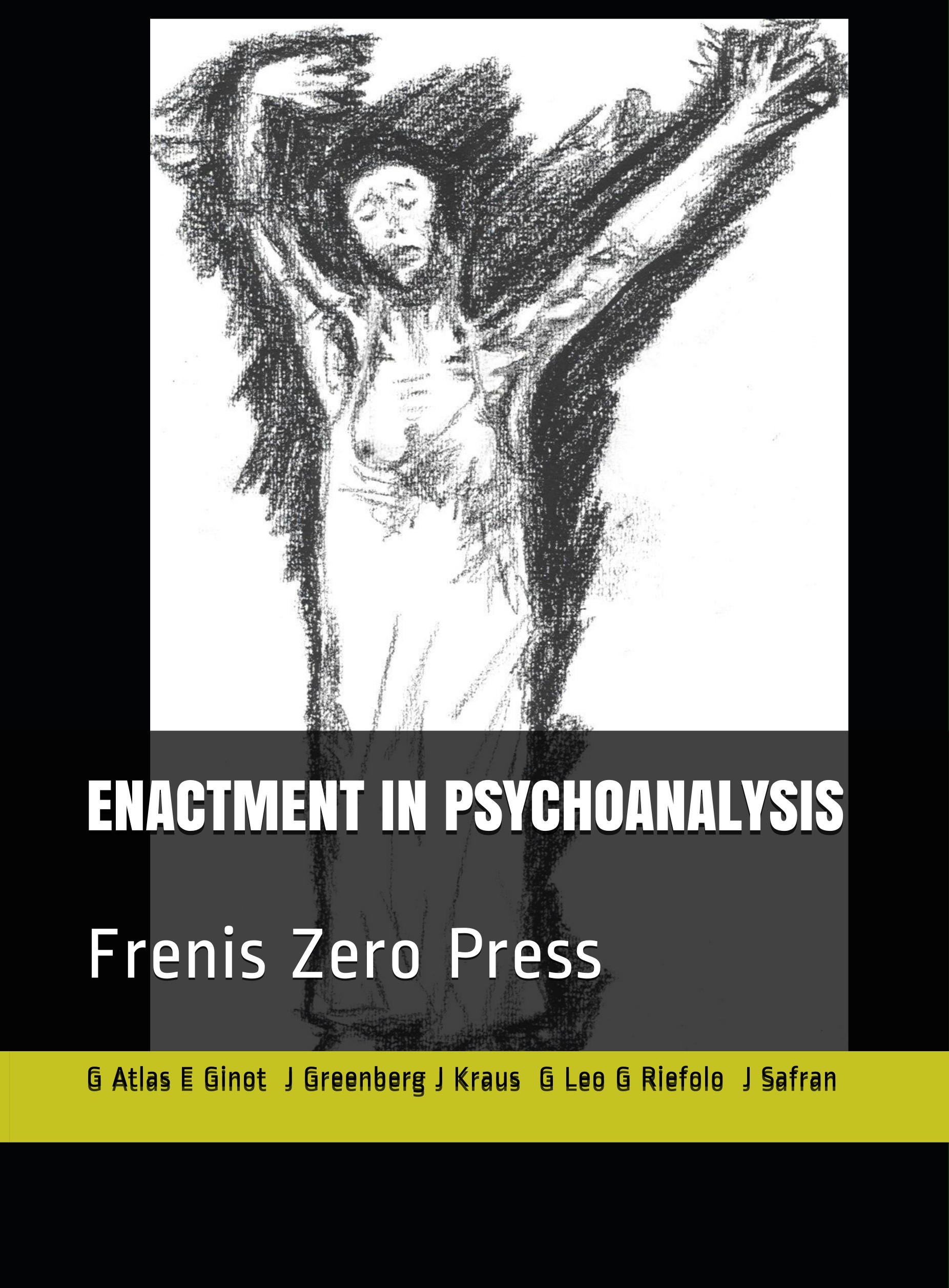
Edited by Giuseppe Leo &
Giuseppe Riefolo
Writings by: G. Atlas
E. Ginot J.R. Greenberg J.
Kraus J.D. Safran
Publisher: Frenis Zero
Collection: Borders of Psychoanalysis
Year: 2020
Pages: 333
ISBN: 978-88-97479-19-2
Click
here to buy the book/Compra su Amazon

"My Ideas Felt Like
Outsize Clothes. A tale for Etty Hillesum" by Giuseppe Leo
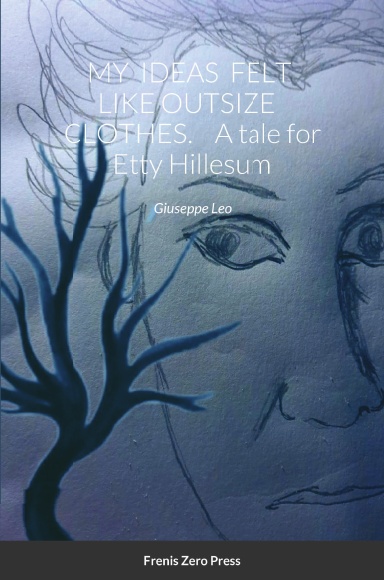
Editore/Publisher: Edizioni Frenis
Zero
ISBN: 978-88-97479-33-8
Anno/Year: 2020
Pages: 122
Click
here to order the book/Ordina
su Lulu

"Environmental
Crisis and Pandemic. A Challenge for Psychoanalysis" edited
by Giuseppe Leo (Second Edition)
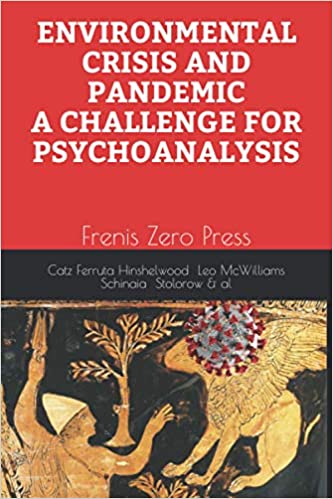
Writings by: H.
Catz, A.
Ferruta,
M. Francesconi, P. R. Goisis, R. D. Hinshelwood, G. Leo, N.
McWilliams, G. Riefolo, M.
Roth, C. Schinaia, D. Scotto
Di Fasano, R. D. Stolorow
Editore/Publisher: Edizioni Frenis
Zero
ISBN: 978-88-97479-37-6
Anno/Year: 2020
Pages: 312
Click
here to order the book/Ordina
su Lulu

Click
here to buy the book/Compra su Amazon

"Psychanalyse,
Lieux de Mémoire et Traumatismes Collectifs" sous la direction
de Giuseppe Leo
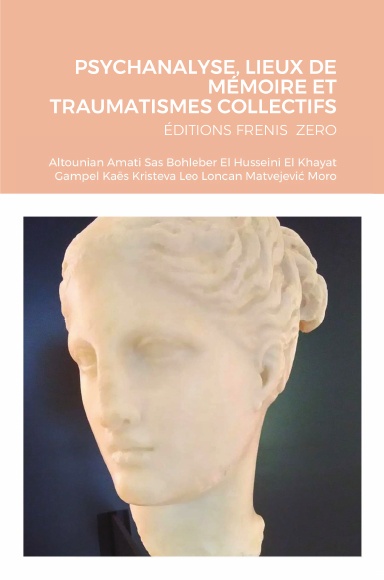
Writings by: J.
Altounian, S. Amati Sas, W. Bohleber, M. El Husseini, R. El Khayat, Y.
Gampel R. Kaës, J. Kristeva, G. Leo, A. Loncan, P. Matvejević, M.-R.
Moro
Editore/Publisher: Edizioni Frenis
Zero
ISBN: 978-88-97479-29-1
Anno/Year: 2020
Pages: 482
Click
here to order the book/Ordina
su Lulu

"Fear
of Lockdown. Psychoanalysis, Pandemic Discontents and Climate
Change" edited by Giuseppe
Leo
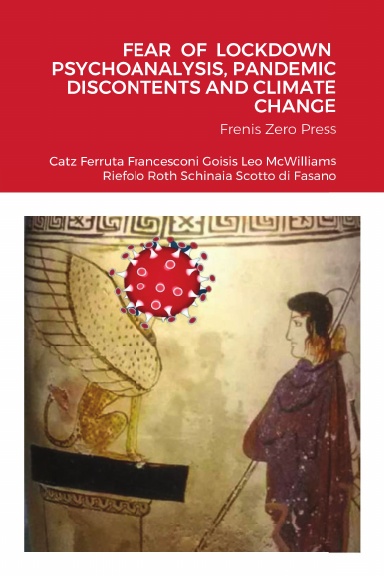
Writings by: H.
Catz, A.
Ferruta,
M. Francesconi, P. R. Goisis, G.
Leo, N. McWilliams, G.
Riefolo, M. Roth, C.
Schinaia, D. Scotto Di Fasano
Editore/Publisher: Edizioni Frenis
Zero
ISBN: 978-88-97479-21-5
Anno/Year: 2020
Pages: 295
Click
here to order the book/Ordina
su Lulu

Click
here to buy the book/Compra su Amazon

"Rock Music & Psychoanalysis"
Second Edition
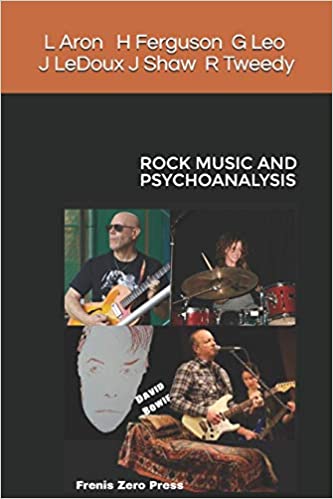
Edited
by: Giuseppe Leo
Authored
by/autori: Lewis
Aron Heather
Ferguson Joseph LeDoux Giuseppe Leo John
Shaw Rod Tweedy
Editore/Publisher: Edizioni Frenis Zero
Collection/Collana: Borders
of Psychoanalysis
Anno/Year: 2020
Pagine/Pages: 221
ISBN:978-88-97479-35-2
Click
here to buy the book/Compra su Amazon

"Essere nella cura"
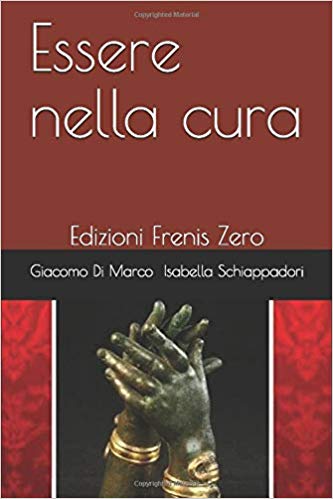
Authored
by/autori: Giacomo
Di Marco & Isabella
Schiappadori
Editore/Publisher: Edizioni Frenis Zero
Collection/Collana: Confini
della Psicoanalisi
Anno/Year: 2019
Pagine/Pages: 210
ISBN:978-88-97479-17-8
Click
here to order the book
"Enactment
in Psychoanalysis"
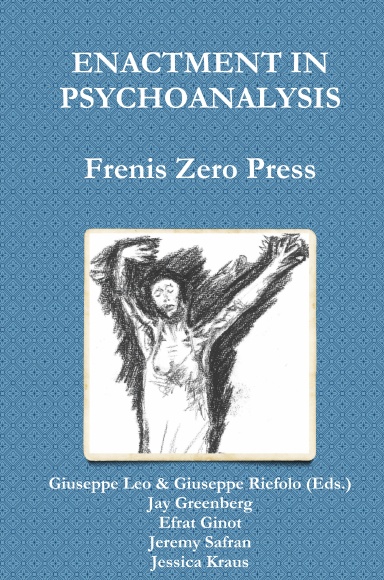
Edited by Giuseppe Leo &
Giuseppe Riefolo
Writings by: E.
Ginot J.R. Greenberg J. Kraus J.D. Safran
Publisher: Frenis Zero
Collection: Borders of Psychoanalysis
Year: 2019
Pages: 326
ISBN: 978-88-97479-15-4
Click
here to order the book
"Infant Research and Psychoanalysis"

Edited by Giuseppe Leo
Writings by: B.
Beebe K. Lyons-Ruth J. P. Nahum E. Solheim C.
Trevarthen E. Z. Tronick L.
Vulliez-Coady
Publisher: Frenis Zero
Collection: Borders of Psychoanalysis
Year: 2018
Pages: 273
ISBN: 978-88-97479-14-7
Click
here to order the book
"Fundamentalism
and Psychoanalysis"
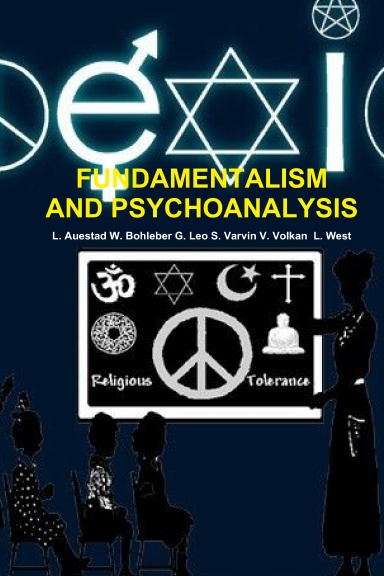
Edited by Giuseppe Leo
Prefaced by: Vamik D. Volkan
Writings by: L.
Auestad W. Bohleber S. Varvin
L. West
Publisher: Frenis Zero
Collection: Mediterranean Id-entities
Year: 2017
Pages: 214
ISBN: 978-88-97479-13-0
Click
here to order the book
"Psicoanalisi,
luoghi della resilienza ed immigrazione"
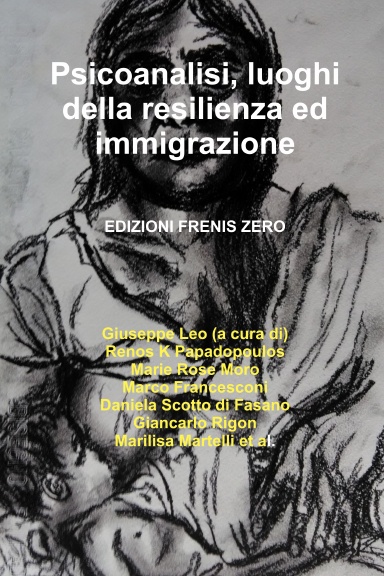
Edited
by/a cura di: Giuseppe Leo
Writings by/scritti
di:
S. Araùjo Cabral, L.
Curone,
M. Francesconi,
L.
Frattini,
S. Impagliazzo, D. Centenaro Levandowski, G. Magnani, M. Manetti, C.
Marangio, G.
A. Marra e Rosa, M.
Martelli,
M. R. Moro, R. K. Papadopoulos,
A. Pellicciari,
G. Rigon,
D. Scotto di Fasano, E. Zini, A. Zunino
Editore/Publisher: Edizioni Frenis Zero
Collection/Collana: Mediterranean
Id-entities
Anno/Year: 2017
Pagine/Pages: 372
ISBN:978-88-97479-11-6
Click
here to order the book
"Psicoanalisi
in Terra Santa"
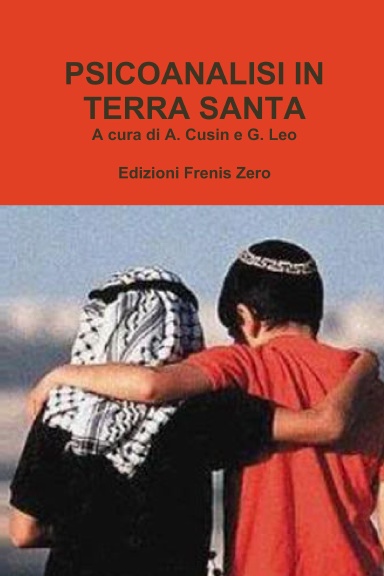
Edited
by/a cura di: Ambra Cusin & Giuseppe Leo
Prefaced by/prefazione
di:
Anna Sabatini Scalmati
Writings by/scritti
di:
H. Abramovitch A. Cusin M.
Dwairy A. Lotem M.
Mansur M. P. Salatiello Afterword
by/ Postfazione
di:
Ch. U.
Schminck-Gustavus
Notes by/ Note di: Nader Akkad
Editore/Publisher: Edizioni Frenis Zero
Collection/Collana: Mediterranean
Id-entities
Anno/Year: 2017
Pagine/Pages: 170
ISBN:978-88-97479-12-3
Click
here to buy the book
"Essere
bambini a Gaza. Il trauma infinito"

Authored
by/autore: Maria
Patrizia
Salatiello
Editore/Publisher: Edizioni Frenis Zero
Collection/Collana: Mediterranean
Id-entities
Anno/Year: 2016
Pagine/Pages: 242
ISBN:978-88-97479-08-6
Click
here to buy the book
Psychoanalysis,
Collective Traumas and Memory Places (English Edition)
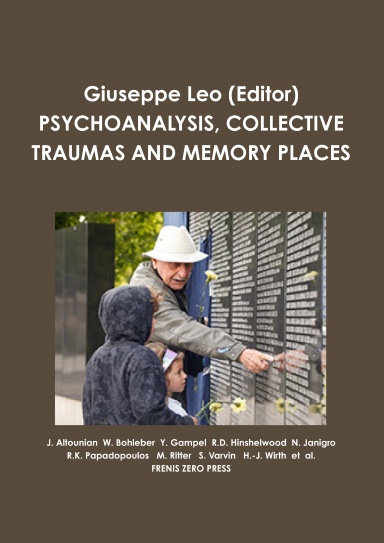
Edited
by/a cura di: Giuseppe Leo Prefaced by/prefazione
di:
R.D.Hinshelwood
Writings by/scritti di: J.
Altounian W.
Bohleber J.
Deutsch
H. Halberstadt-Freud Y.
Gampel
N. Janigro R.K.
Papadopoulos
M. Ritter S. Varvin H.-J. Wirth
Editore/Publisher: Edizioni Frenis Zero
Collection/Collana: Mediterranean
Id-entities
Anno/Year: 2015
Pagine/Pages: 330
ISBN:978-88-97479-09-3
Click
here to buy the book
"L'uomo dietro al lettino" di Gabriele Cassullodi Gabriele Cassullodi Gabriele Cassullo
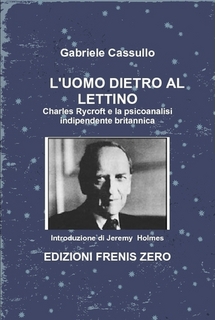
Prefaced by/prefazione di: Jeremy
Holmes
Editore/Publisher: Edizioni Frenis Zero
Collection/Collana: Biografie
dell'Inconscio
Anno/Year: 2015
Pagine/Pages: 350
ISBN:978-88-97479-07-9
Click here to order the book
"Neuroscience
and Psychoanalysis" (English Edition)

Edited by/a cura di: Giuseppe Leo
Prefaced by/prefazione di:
Georg Northoff
Writings by/scritti di: D.
Mann A. N. Schore R.
Stickgold
B.A. Van Der
Kolk
G. Vaslamatzis M.P. Walker
Editore/Publisher:
Edizioni Frenis Zero
Collection/Collana: Psicoanalisi e
neuroscienze
Anno/Year: 2014
Pagine/Pages: 300
ISBN:978-88-97479-06-2
Click
here to order the book
Vera
Schmidt, "Scritti su psicoanalisi infantile ed educazione"

Edited by/a cura di: Giuseppe
Leo
Prefaced by/prefazione di:
Alberto
Angelini
Introduced by/introduzione di:
Vlasta
Polojaz
Afterword by/post-fazione di: Rita
Corsa
Editore/Publisher: Edizioni Frenis
Zero
Collana: Biografie dell'Inconscio
Anno/Year: 2014
Pagine/Pages: 248
ISBN:978-88-97479-05-5
Click
here to order the book
Resnik,
S. et al. (a cura di Monica Ferri), "L'ascolto dei sensi e dei
luoghi nella relazione terapeutica"
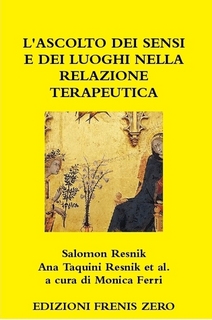
Writings by:A.
Ambrosini, A. Bimbi, M.
Ferri,
G. Gabbriellini, A. Luperini, S.
Resnik,
S. Rodighiero, R. Tancredi, A. Taquini
Resnik, G. Trippi
Editore/Publisher: Edizioni Frenis
Zero
Collana: Confini della Psicoanalisi
Anno/Year: 2013
Pagine/Pages: 156
ISBN:978-88-97479-04-8
Click
here to order the book
Silvio
G. Cusin, "Sessualità e conoscenza"
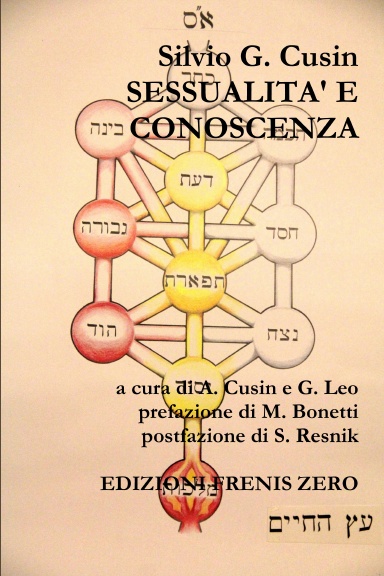
A cura di/Edited by: A. Cusin
& G. Leo
Editore/Publisher: Edizioni Frenis
Zero
Collana/Collection: Biografie
dell'Inconscio
Anno/Year: 2013
Pagine/Pages: 476
ISBN: 978-88-97479-03-1
Click
here to order the book
AA.VV.,
"Psicoanalisi e luoghi della riabilitazione", a cura di G. Leo e G.
Riefolo (Editors)
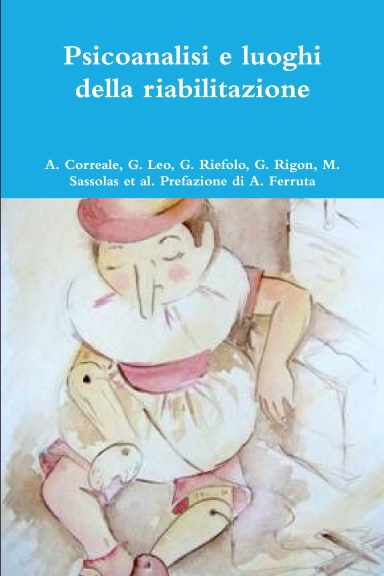
A cura di/Edited by: G. Leo
& G. Riefolo
Editore/Publisher: Edizioni Frenis
Zero
Collana/Collection: Id-entità
mediterranee
Anno/Year: 2013
Pagine/Pages: 426
ISBN: 978-88-903710-9-7
Prezzo/Price:
€ 39,00
Click
here to order the book
AA.VV.,
"Scrittura e memoria", a cura di R. Bolletti (Editor)
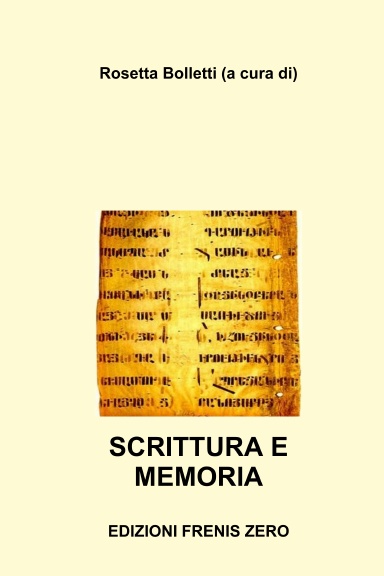
Writings by: J. Altounian, S. Amati Sas, A. Arslan,
R. Bolletti, P. De Silvestris, M. Morello, A. Sabatini Scalmati.
Editore/Publisher: Edizioni Frenis
Zero
Collana: Cordoglio e pregiudizio
Anno/Year: 2012
Pagine/Pages: 136
ISBN: 978-88-903710-7-3
Click
here to order the book
AA.VV.,
"Lo
spazio velato. Femminile e
discorso
psicoanalitico"
a cura di G. Leo e L. Montani (Editors)
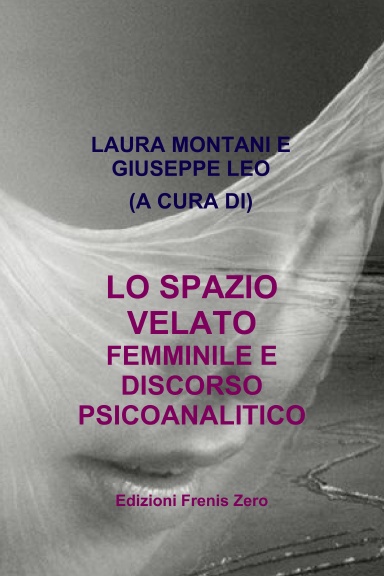
Writings by: A. Cusin, J. Kristeva, A. Loncan, S.
Marino, B. Massimilla, L. Montani, A. Nunziante Cesaro, S. Parrello, M.
Sommantico, G. Stanziano, L. Tarantini, A. Zurolo.
Editore/Publisher: Edizioni Frenis
Zero
Collana: Confini della psicoanalisi
Anno/Year: 2012
Pagine/Pages: 382
ISBN: 978-88-903710-6-6
Click
here to order the book
AA.VV., Psychoanalysis and its Borders, a cura di G. Leo (Editor)
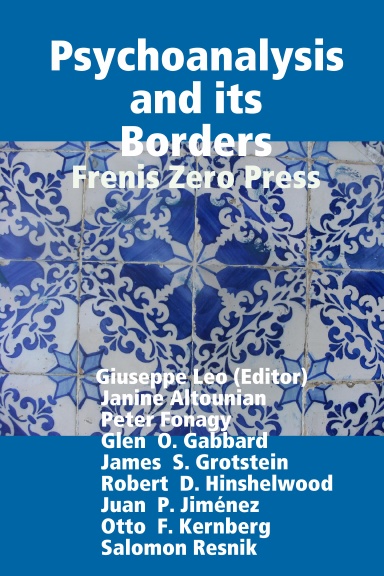
Writings by: J.
Altounian, P. Fonagy, G.O. Gabbard, J.S. Grotstein, R.D. Hinshelwood,
J.P. Jimenez, O.F. Kernberg, S. Resnik.
Editore/Publisher: Edizioni Frenis
Zero
Collana/Collection: Borders of
Psychoanalysis
Anno/Year: 2012
Pagine/Pages: 348
ISBN: 978-88-974790-2-4
Click
here to order the book
AA.VV.,
"Psicoanalisi e luoghi della negazione", a cura di A. Cusin e G. Leo
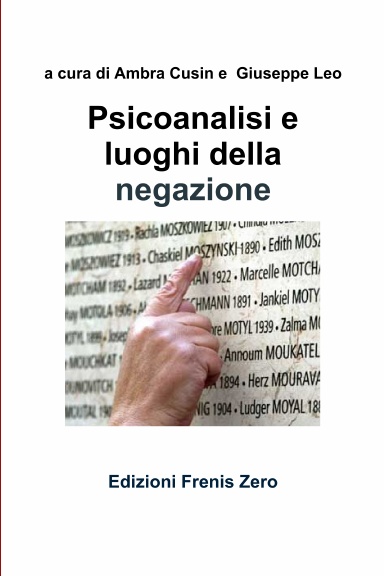
Writings by:J.
Altounian, S. Amati Sas, M. e M. Avakian, W. A.
Cusin, N. Janigro, G. Leo, B. E. Litowitz, S. Resnik, A.
Sabatini Scalmati, G. Schneider, M. Šebek,
F. Sironi, L. Tarantini.
Editore/Publisher: Edizioni Frenis
Zero
Collana/Collection: Id-entità
mediterranee
Anno/Year: 2011
Pagine/Pages: 400
ISBN: 978-88-903710-4-2
Click
here to order the book
"The
Voyage Out" by Virginia Woolf
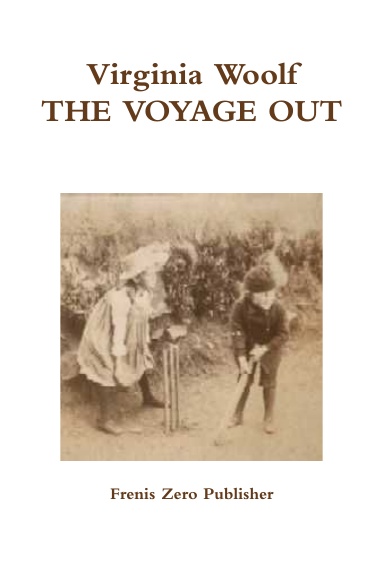
Editore/Publisher: Edizioni Frenis
Zero
ISBN: 978-88-97479-01-7
Anno/Year: 2011
Pages: 672
Click
here to order the book
"Psicologia
dell'antisemitismo" di Imre Hermann
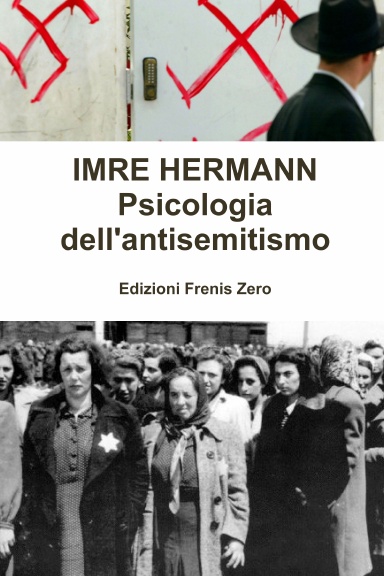
Author:Imre Hermann
Editore/Publisher: Edizioni Frenis
Zero
ISBN: 978-88-903710-3-5
Anno/Year: 2011
Pages: 158
Click
here to order the book
"Vite
soffiate. I vinti della psicoanalisi" di
Giuseppe Leo
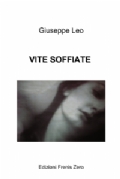
Editore/Publisher: Edizioni Frenis
Zero
Edizione: 2a
ISBN: 978-88-903710-5-9
Anno/Year: 2011
Click
here to order the book
"La Psicoanalisi
e i suoi confini" edited by Giuseppe Leo
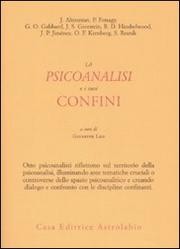
Writings by: J. Altounian, P. Fonagy, G.O. Gabbard, J.S. Grotstein,
R.D. Hinshelwood, J.P. Jiménez, O.F. Kernberg, S. Resnik
Editore/Publisher: Astrolabio
Ubaldini
ISBN: 978-88-340155-7-5
Anno/Year: 2009
Pages: 224
Prezzo/Price: € 20,00
"La
Psicoanalisi. Intrecci Paesaggi Confini"
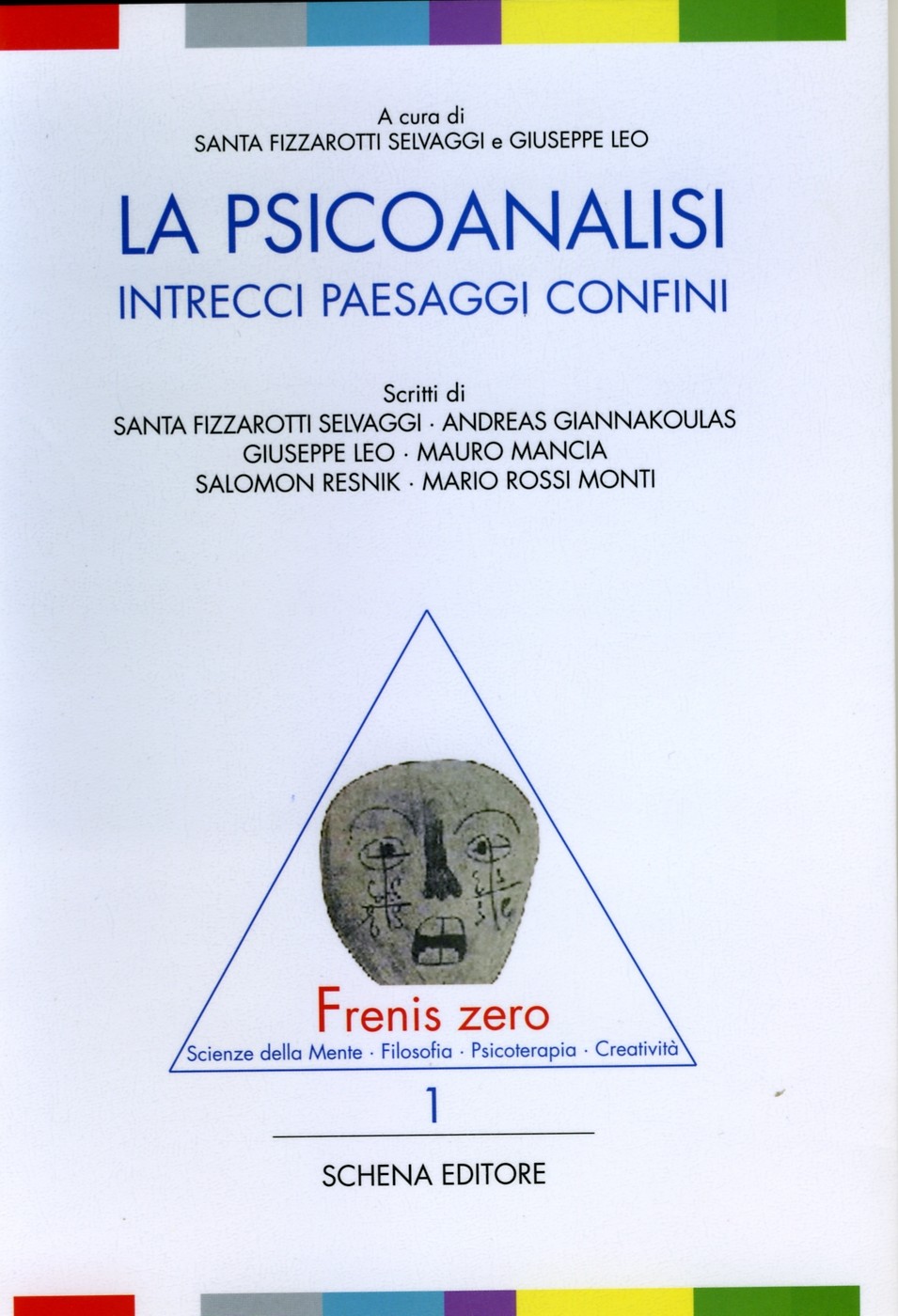
Edited by S. Fizzarotti Selvaggi, G.Leo.
Writings by: Salomon Resnik, Mauro Mancia,
Andreas Giannakoulas, Mario Rossi Monti, Santa Fizzarotti Selvaggi,
Giuseppe Leo.
Publisher: Schena Editore
ISBN 88-8229-567-2
Price: € 15,00
Click
here to order the book
|
Clinical experience has led many analysts to prove that certain symptoms
that patients suffer cannot be understood only from their personal history. Its
comprehension can be enriched if the individual is considered as the link of
his/her preceding chain to which he/she also belongs, taking into account the
existence of repetition processes linked to previous generations.
Both family
setting and the use of the genogram as an auxiliary resource together with the
possibility of counting with two or more generations in the therapeutical field
allow us to enrich the knowledge about such processes
Already in 1910, towards the end of his study about Leonardo, Freud
questioned himself:
"May one not take objection to
the findings of an inquiry which ascribes to accidental circumstances of his
parental constellation so decisive an influence on a person’s fate? [...] We
naturally feel hurt that a just God and a kindly providence do not protect us
better from such influences…”
He seemed worried and concerned due to the “mortifying” influences that denote the fate of the
individuals beyond not only their consciousness but also beyond their generations.
Later, in 1912, he will add that "No generation is capable of
hiding the ones that follow it, the significant psychic facts”
And, in 1914, he introduces the intergenerational dimension in his
theoretical background: “his majesty the baby’… shall
fulfill those wishful dreams of the parents which they never carried out”, which at the same time contain
the representations that come from other generations: the constitutional, as "sequences
of our ancestors’ experiences” and also the inheritance of fantasies which precede the subject: the urphantasien or primal fantasies, regarding
transgenerationally transmitted fantasies, as a product of cultural experience.
The subject appears then to be, on one hand, his own
end (Freud, 1914c) and, on the other hand, a link of a chain to which he/she is
attached to before his/her existence as an individual. A double chain in fact: the
generational and the contemporary ones.
Pichon Rivière (1962-65) will express this with his
metaphor of the cross: the individual appears in the intersection of the
vertical branch (transgenerational chain) and the horizontal one (chain of his contemporaries).
That
is why some people have thought that after the three injuries to the narcissism pointed
out by Freud (1917), the one of Copernican discovery (the earth is not the
Universe’s center), the Darwinian one (man is an animal as others) and the
psychoanalytic one (man is not completely the owner of his acts, because he is
governed by his own unconscious), a fourth injury could then be added: man is
governed not only by his unconscious, but by other people’s unconscious.
Piera
Aulagnier (1975) will later refer to the 1914 Freudian statement with her
concept of narcissistic contract: the
individual must secure the continuity of both the lineage and the environment.
To achieve this, the family and the social group must narcissistically invest
the new member by giving him/her a social place which is signified as ideals,
values or ways of reading and understanding reality, according to the family
myth, allowing the individual to take a place in the generational chain to
which he/she belongs.
The subject is then “narcisized” by his family group,
but he also must satisfy his family’s narcissistic needs.
The unconscious agreement
between two or more subjects, according to which certain contents must be
submitted to repression destiny (and other more “primitive” defenses) is named
by Kaës (1989) as the denegative pact. This pact is
structuring to the link, but it has a defensive function too. These defenses
are not only intrapsychic, but also “co-defenses” established by the structuring and/or defensive needs
of the family links from which they depend.
Ways
of transmission
Following Kaës (1993), we will
consider three different types of transmission: intrapsychic, interpsychic (or
intersubjective) and transpsychic. In the intrapsychic
transmission, described by Freud
in his theory on dreams, the transmission of the psychic contents takes place
from the unconscious to the preconscious or the conscious system, or, in the
second topic reading, from one psychic instance to another.
The interpsychic
(or intersubjective) transmission originates
in the family group, as an intergenerational
transmission.
Through this way narcissistic
investments like the narcissistic contract, ideals, values,
identifications, defensive modalities, trophic myths, separation experiences
(Winnicott`s dis-illusion), together with intersubjective
links that generate a psychic space among the subjects and the identifications
are transmitted. Winnicott (1971) tells us about the mother’s (and
the family) mirror function: it is
the family that gives back the child the notion of being himself, recognizing
and naming his affects, his moods, his desires, etc.
This is
a structuring transmission that implies the plurigenerational support from the
family group.
One of
us has named this transmission modality
“trophic”, (Losso 2001), in the sense that it is a “nutrient”, nourishing,
transmission that stimulates the development, allowing a psychic work of each
subject, that then re-encounters and recreates the parts of his/her own history
that have been transmitted without his awareness.
This transmission implies that a transgenerational working-through process could take place, with secondary fantasies that allow
the successive transformations of mandates and legacies from one generation to
another.
The transmitted contents are incorporated into
the psychism of the new generation. A transitional space between the subjects
is then developed, creating a –mythical- family history, from which every
member is able to take the elements to create his/her own myth.
We think that in contemporary
society, there is a tendency to an absence or a rejection of anchorages to
cultural and family standards coming from previous generations. Trophic
legacies are minimized, tradition is devaluated and models are looked down on,
disrupting the possibility of carrying out the transgenerational
working-through transmission. There is a trophic
transmission deficit.
Culture of the instantaneous of the immediate, or the image, makes the
characters that become noticeable through mass-media prevail as imitation models (Gaddini, 1969) –not
identification ones.
The myth of the individual’s "independence" as a virtual
absolute value together with what one of us has named the "3 E culture" (efficiency,
efficacy, economy- Losso, 1997) and the individuals’ valuation based on
material progress as a change that can be “objectively measured” contributes to
devaluate origins. This also favors the self-engendering fantasies that are
antagonistic towards solidarity values
and the sense of group belonging, which will disrupt the transgenerational working-through
processes.
The transpsychic transmission, instead, is constituted by what comes
from other people’s psychism, external to the individual and belonging to other
generations (parents, grandparents, great-grandparents, significant characters
of their family mythology) and that goes
through the subject’s psyche.
The transitional space is
missing at this level. The transmission is not performed between the subjects,
but through them. The
contents transmitted by this way are contents “in a rough state”, with no
possibility of being worked through, and that may be felt by the recipient as
something that “withdraws vitality” or as a presence of something “strange”, an
element that alienates and disturbs.. What was transmitted is not transformed. It is
therefore a repetitive transmission.
This prevents the development of a transgenerational working-through process.
Parents have received the
command to transmit what they have not been able to work through, due to their
shortages, structural failures and narcissistic requirements, as a defensive
necessity to maintain their own psychic life. Frequently they resort to the use
of transpersonal defenses, defined by
Laing (in Muir, 1983) as those defenses in which
the individual intends to control the other individuals’ internal world, by
acting on the other individual’s experiences, in order to be able to maintain
his own psychic balance. Subjects are pressured to meet impossible
demands that are, in fact, demands from mythical characters, and remain tied to
invisible loyalties (Boszormenyi-Nagy
& Spark, 1973). In this case it cannot be working through, but
repetition.
The
contents transmitted with no modification, remain as a schism, embodied,
encysted –in the sense elaborated by Abraham & Torok (1978)- but cannot be
introjected. Framo (1965) has named them
“fossil remains”. Abraham and Torok (1978) have defined them as ghosts (phantoms) that dwell in crypts.
The transgenerational repetition
The
Freudian concept of compulsion to repeat refers to the intrapsychic world. But from the
link theory point of view, we can propose the existence of a transgenerational repetition (Losso,
1990), as a repetition of phenomena related to traumatic situations that
couldn’t be worked through by previous generations, a repetition in which more
than one subject is involved and implies
a sort of transgenerational violence.
We want to
point out the fact that when we talk of repetition we refer to an “incomplete
repetition”. We know that nothing repeats itself completely, because time
cannot be frozen. In every repetition there is something new. There is, we
could say, a failed attempt of working-through.
The shared family
unconscious working-through fantasy
Clinical experience has shown us that families which are in this situation
of repetition with the impossibility of working through traumatic experiences,
frequently develop a shared family
unconscious working-through fantasy,
which means that if a certain event happens, this will allow the
working-through of what, that till now, has not been processed. When this
happens, of course, the working-through cannot be carried out and a new
repetition will happen.
The
“C” family
In the following case we will show how the family
develops the fantasy that the death of one of its members will allow to
work-through the multiple mourning situations that till then had been
prevented.
The “C” family was integrated
by Norma (35), her husband Eduardo (37), and their two daughters, Cristina (5)
and Laura (2). The family consulted because Cristina showed severe bronchial
and lung problems that were threatening
her life. In two circumstances she had to be hospitalized.
Eduardo’s father had died when Eduardo, the only child, was five and his
grandfather had committed suicide by throwing himself onto the train rails. His
mother suffered from a chronic depressive disorder and had once tried to commit
suicide. On that occasion, she threw herself under the underground train, but
she survived because she fell between the rails. Eduardo appeared as an
obsessive with a depressive background.
Norma had a brother, who had been kidnapped and “desaparecido”
(missing), during the military dictatorship in Argentina, but both she and her
family denied the fact that he could have been dead, although more than fifteen
years had passed by, then.
During the first stages of the psychoanalytic family therapy, we as
analysts in co-therapy, felt that the family, particularly Cristina,
transmitted a menace of `psychic annihilation, of breakdown and of (real) danger
of Cristina’s death. Consequently we were on a permanent alarm, with a menace
that something serious could happen. The sessions material went around
Cristina’s illness, her doctors, her treatments, her evolution and so on. But as Cristina was getting gradually better,
the field climate began to be more “boring”; it became frankly depressive. The depression was in the place of the
anxiety generated around Cristina’s disease. The family came punctually to
their sessions, but we felt that “nothing happened”, as if they had been coming
“to waste their time”.
Countertransferentially, we felt paralysis, futility, boredom and lack
of hope. Eduardo said: “all is pointless.
It is better not to talk because if we talk, we’ll reach a total conflict with
no return”. “Total conflict” meant annihilation, breakdown and eventually
death, which is the only point of no return.
The
first consultation had been related to a death threat. The pediatrician had
transmitted her concern about Cristina’s symptoms, which, she said,
"expressed the family’s anger, their discomfort”. “It is as if she were
committing suicide”, she added. Cristina said that “she would go under the ground”
and communicated dreams in which she and her mother were captured by “monsters”
that tortured them, tearing off their hair, and other nightmares in which her
mother was run over by a train (let’s
point out that she had never been told either how her grandfather had died or
about the grandmother’s suicide attempts, or the missing uncle).
The transgenerational
repetition became manifest in the analytic field through the “death mission” Cristina
was doomed to fulfill, due to the “pending bills” of her previous generations.
Cristina’s body was the place of resonance of non-worked through mourning. It
summarized all the deaths.
The shared family unconscious
working-through fantasy of “C” family was that the real death of the
patient-symptom and the concrete presence
of a corpse would permit the “working through” of all the mourning that
the family had not been able to work through along at least three generations. Someone had to die.
We are here facing transgenerational repetition in the links. Both
Eduardo and Norma bore in their respective families, traumatic situations with
origins in a not elaborated mourning. The couple was built around this mourning,
and a mutual feeling of misfortune, creating a depressive bond in which the
shared depression somehow protected the breakdown (the threat Eduardo talked
about). They configured a bond organized in the confusion between life and
death, where death was “suspended” but it should reappear in the coming
generation.
"A
word buried in the father is a dead man without a burial in the child” (N. Abraham)
After having analyzed these
fantasies in the analytic field, the family was able to start facing the deep
pain of their not elaborated mourning and the tanathic delegations from the
previous generations.
They were able to disclose the ghosts, spreading the cryptic secrets in the
therapeutical field and giving a sense to the repetition phenomena. All this
helped everyone out and set Cristina free from the repetition and her death
destiny.
The family approach, from the presence of two or more generations in the
therapeutical field, facilitates the activity of disclosing the split, the
contents hidden in crypts that have been working from previous generations
through the transgenerational repetitions, as an expression of the symbolic
debts to those generations. It can also help to undo the subjects from that non
differentiated psychic space and build up, between the family and the
therapists, a story and a working-through that gives rise to a differentiation
process between what was transmitted without been processed and what was
received and transformed by the subjects.
SUMMARY
Extending the Freudian concept of repetition
compulsion, we introduce that of transgenerational repetition, in which the
repetition is produced through the generations, constituting the transmission-repetition
modality. We also develop the concept of trophic transmission,
necessary for the constitution and development of the psychic apparatus, which
permits a process of transgenerational working-through of the psychic
contents, enabling a transmission-working-through modality. We discuss
the similarities and differences between the concepts of intrapsychic
working-through and intersubjective and inter and transgenerational
working-through. We describe the obstacles to this process in “dysfunctional”
families and state the presence of a shared family unconscious
working-through fantasy in these families. We present a clinical case in
which this fantasy was that the real death of the patient-symptom and the
concrete presence of a corpse would “permit” the working-through of all the
mourning that the family had not been able of working-through along at least
three generations. .
REFERENCES
ABRAHAM, N. & TOROK, M. (1978): L'écorce et le noyeau. Paris,
Flammarion.
AULAGNIER, P. (1975): La violence
de l'interprétation. Du pictogramme à l' énoncé. Paris, P. U. F. Spanish version: La violencia de la interpretación. Del pictograma al
enunciado. Buenos Aires,
Amorrortu, 1977.
BOSZORMENYI-NAGY, I. & SPARK, C.
(1973): Invisible loyalties. New York, Harper &
Row.
FAIMBERG, H.
(1985): El telescopaje de generaciones: la genealogía de ciertas
identificaciones. Rev. de Psicoanálisis,
vol. 42, núm. 5 .
FRAMO, J. L. (1965): Fundamentos
y técnicas de la terapia familiar intensiva. In: Boszormenyi-Nagy, I. y
Framo, J.: Terapia Familiar Intensiva. Aspectos teóricos y prácticos.
México, Trillas, 1976.
FREUD, S. (1910c): Leonardo da Vinci and a memory of his
childhood. S. E., 11, 59.
FREUD, S. (1912-13): Totem and
Taboo. S. E., 13, 1.
FREUD, S. (1914c): On narcissism: An Introduction , S .E., 14, 67
FREUD, S. (1916-17): Introductory Lectures on Psychoanalysis. S. E., 15,
13
GADDINI, E. (1981): Note sul
problema mente-corpo. Rivista di Psicoanalisi,
27, 1
KAES, R. (1976): L'appareil psychique groupal. Constructions du groupe. Paris,
Dunod.
KAES, R. (1989): Le pacte
dénégatif dans les ensembles trans-subjectifs. In: Missenard, A. et al.: Le négatif, figures et modalités. Paris,
Dunod. Spanish version: El pacto denegativo en los conjuntos trans-subjetivos.
In: A. Missenard y otros: Lo negativo, figuras
y modalidades. Buenos Aires,
Amorrortu, 1991.
KAES, R. (1993): Le groupe et le sujet du groupe. Paris,
Dunod. Spanish version: El grupo y el
sujeto del
grupo. Buenos Aires,
Amorrortu, 1995.
LAING, R.: (1961): Self and others. London, Tavistock Publications.
LAING, R. (1967): quoted by
MUIR, R. C.: Int. Rev. Psycho-anal
(1982), 9: 317.
LOSSO, R. (1990): La Teoría
psicoanalítica y el psicoanálisis familiar.
Rev. de Psicoanálisis, 47: n.
5-6. Italian version: La teoria psicoanalitica e la psicoanalisi della
famiglia. Psicoterapia psicoanalitica,
anno III, num. 1, 1996, p. 21.
LOSSO, R. (1997): Les processus
de transmission et d’adquisition de l’identité. Leurs avatars par rapport aux
nouvelles organisations familiales de la modernité et de la postmodernité: Une
étude psychanalytique. P T A H,
Psychanalyse, Traversées, Anthropologie, Histoire. Num. 3-4, p. 109.
LOSSO, R. (2001): Psicoanálisis de la familia. Recorridos
teórico-clínicos. Buenos Aires,
Lumen. Italian version: Psicoanalisi
della famiglia. Percorsi teorico-clinici. Milano, Franco Angeli, 2000.
LOSSO, R. & FERRAZZANO de
SOLVEY, R. (1985): El cuerpo: un campo de batalla. Actas XIV Congreso Interno y XXIV Simposio "La Agresión".
Buenos Aires,
Asociación Psicoanalítica Argentina.
LOSSO, R., PACKCIARZ LOSSO,
A., HALAC LIFCHITZ, J. (1992): Alguien
debe morir. Lo mortífero a través de las generaciones y su impacto en el
cuerpo. Terceras Jornadas de Psicoanálisis
de la Familia y la Pareja "La dimensión familiar del Psicoanálisis.
Clínica Psicoanalítica de la Familia". Buenos Aires, Asociación Psicoanalítica Argentina.
LOSSO, R., PACKCIARZ LOSSO, A.,
COHAN URRIBARRI, A., SILVANI LAGOMARSINO, L,., SAHADE, M. C., OGLY HANONO, I. (1996): Modalidades del procesamiento de los duelos a
lo largo de las generaciones. Rev. de
Psicoanálisis, 53, n. 3, p. 791.
LOSSO, R., PACKCIARZ LOSSO, A.,
SAHADE, M. C., SILVANI LAGOMARSINO, L. (1997): La dimensión transgeneracional
en la práctica analítica, hoy. In: La
práctica analítica actual. Reflexiones sobre la técnica. Buenos Aires, Asociación Psicoanalítica Argentina, t.
2, p. 533.
LOSSO, R., PACKCIARZ LOSSO, A.,
SAHADE, M. C., SILVANI LAGOMARSINO, L. (1998a): El narcisismo y la dimensión
transgeneracional. Actas Coloquio Italo-argentino SPI-APA, Roma
PICHON RIVIERE, E. (1961-63):Lessons at the
"Primera Escuela Privada de Psiquiatría Dinámica".
RACAMIER, P. C. (1990): A propos
de l'engrènement. Gruppo, n. 6.
Paris, Apsygée.
RUFFIOT, A. (1984): La terapia familiar
psicoanalítica: un tratamiento eficaz del
terreno psicótico. Rev Arg. Psicol. y
Psicoterapia de Grupo, 7, n. 1:
107.
TISSERON, S., TOROK, M., RAND, N., NACHIN, C.,
HACHET, P., ROUCHY, J. Cl. (1995): Le
psychisme à l'épreuve des générations. Clinique du fantôme. Paris, Dunod.
Spanish version: El psiquismo a la prueba
de las generaciones. Buenos Aires,
Amorrortu, 1997
XXXXXX
XXXXXXXXXXXXXXXXXXX
XXXXXXXXXXXXXXXXXXX
XXXXXXXXXXXXXXXXXXX
XXXXXXXXXXXXXXXXXXX
XXXXXXXXXXXXXXXXXXX
XXXXXXXXXXXXXXXXXXX
XXXXXXXXXXXXXXXXXXX
XXXXXXXXXXXXXXXXXXX
XXXXXXXXXXXXXXXXXXX
XXXXXXXXXXXXXXXXXXX
XXXXXXXXXXXXXXXXXXX
XXXXXXXXXXXXXXXXXXX
XXXXXXXXXXXXXXXXXXX
XXXXXXXXXXXXXXXXXXX
XXXXXXXXXXXXXXXXXXX
XXXXXXXXXXXXXXXXXXX
XXXXXXXXXXXXXXXXXXX
XXXXXXXXXXXXXXXXXXX
XXXXXXXXXXXXXXXXXXX
XXXXXXXXXXXXXXXXXXX
XXXXXXXXXXXXXXXXXXX
XXXXXXXXXXXXXXXXXXX
XXXXXXXXXXXXXXXXXXX
XXXXXXXXXXXXXXXXXXX
XXXXXXXXXXXXXXXXXXX
XXXXXXXXXXXXXXXXXXX
XXXXXXXXXXXXXXXXXXX
XXXXXXXXXXXXXXXXXXX
XXXXXXXXXXXXXXXXXXX
XXXXXXXXXXXXXXXXXXX
XXXXXXXXXXXXXXXXXXX
XXXXXXXXXXXXXXXXXXX
XXXXXXXXXXXXXXXXXXX
XXXXXXXXXXXXXXXXXXX
|
|
|
|
|
|
|
|
|
|
|
|
|
|
|
|
|
|
|
|
|
|
|
|
|
|

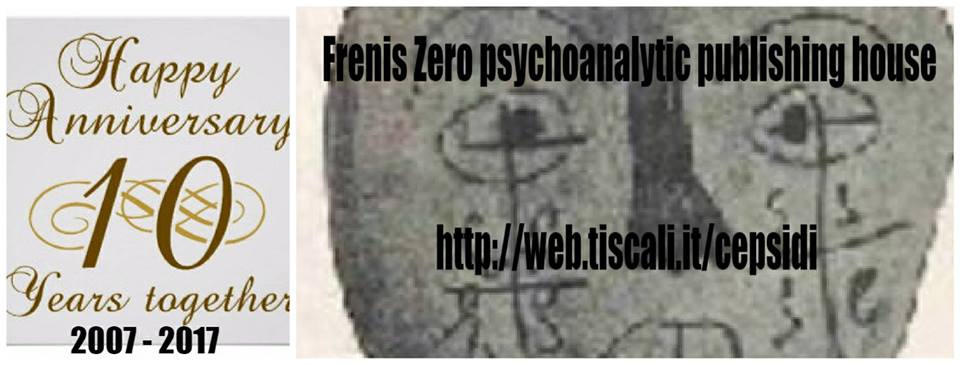


 Roberto
Losso (1928-2023) was physician (University of Buenos Aites), doctor of
Medicine and Surgery (University of Rome), psychoanalyst and
psychiatrist. He was training member of the Argentine Psychoanalytic
Association (APA) and of the International Psychoanalytic Association
(IPA). He was professor of "Mental Health, Psycho-semiology and
Psychiatry" at the Faculty of Medicine of UBA (University of Buenos
Aires), and of "Clinics of the Couple and the Family" at Kennedy
University (specialization in Clinical psychology). He is the author of
several books, of many chapters of books, concerning psychoanalysis of
the family and the couple, and of 72 papers published in many
scientific journals.
Roberto
Losso (1928-2023) was physician (University of Buenos Aites), doctor of
Medicine and Surgery (University of Rome), psychoanalyst and
psychiatrist. He was training member of the Argentine Psychoanalytic
Association (APA) and of the International Psychoanalytic Association
(IPA). He was professor of "Mental Health, Psycho-semiology and
Psychiatry" at the Faculty of Medicine of UBA (University of Buenos
Aires), and of "Clinics of the Couple and the Family" at Kennedy
University (specialization in Clinical psychology). He is the author of
several books, of many chapters of books, concerning psychoanalysis of
the family and the couple, and of 72 papers published in many
scientific journals. Roberto Losso (1928-2023) fue
Roberto Losso (1928-2023) fue  Roberto Losso (1928-2023) è stato medico (Università di Buenos Aires),
dottore in Medicina e Chirurgia (Università di Roma), psicoanalista e
specialista in psichiatria. E' stato membro con funzioni di training
dell'Associazione Psicoanalitica Argentina (APA) e della Associazione
Psicoanalitica Internazionale (IPA). E' stato professore di "Salute
Mentale, Psicosemiologia e Psichiatria" alla Facoltà di Medicina
dell'Università di Buenos Aires (UBA), e di "Clinica della Coppia e
della Famiglia" all'Università Kennedy (specializzazione di Psicologia
Clinica). E' autore di libri, di capitoli in differenti libri
concernenti la psicoanalisi della famiglia e della coppia, nonché di 72
articoli pubblicati in riviste scientifiche.
Roberto Losso (1928-2023) è stato medico (Università di Buenos Aires),
dottore in Medicina e Chirurgia (Università di Roma), psicoanalista e
specialista in psichiatria. E' stato membro con funzioni di training
dell'Associazione Psicoanalitica Argentina (APA) e della Associazione
Psicoanalitica Internazionale (IPA). E' stato professore di "Salute
Mentale, Psicosemiologia e Psichiatria" alla Facoltà di Medicina
dell'Università di Buenos Aires (UBA), e di "Clinica della Coppia e
della Famiglia" all'Università Kennedy (specializzazione di Psicologia
Clinica). E' autore di libri, di capitoli in differenti libri
concernenti la psicoanalisi della famiglia e della coppia, nonché di 72
articoli pubblicati in riviste scientifiche.








































